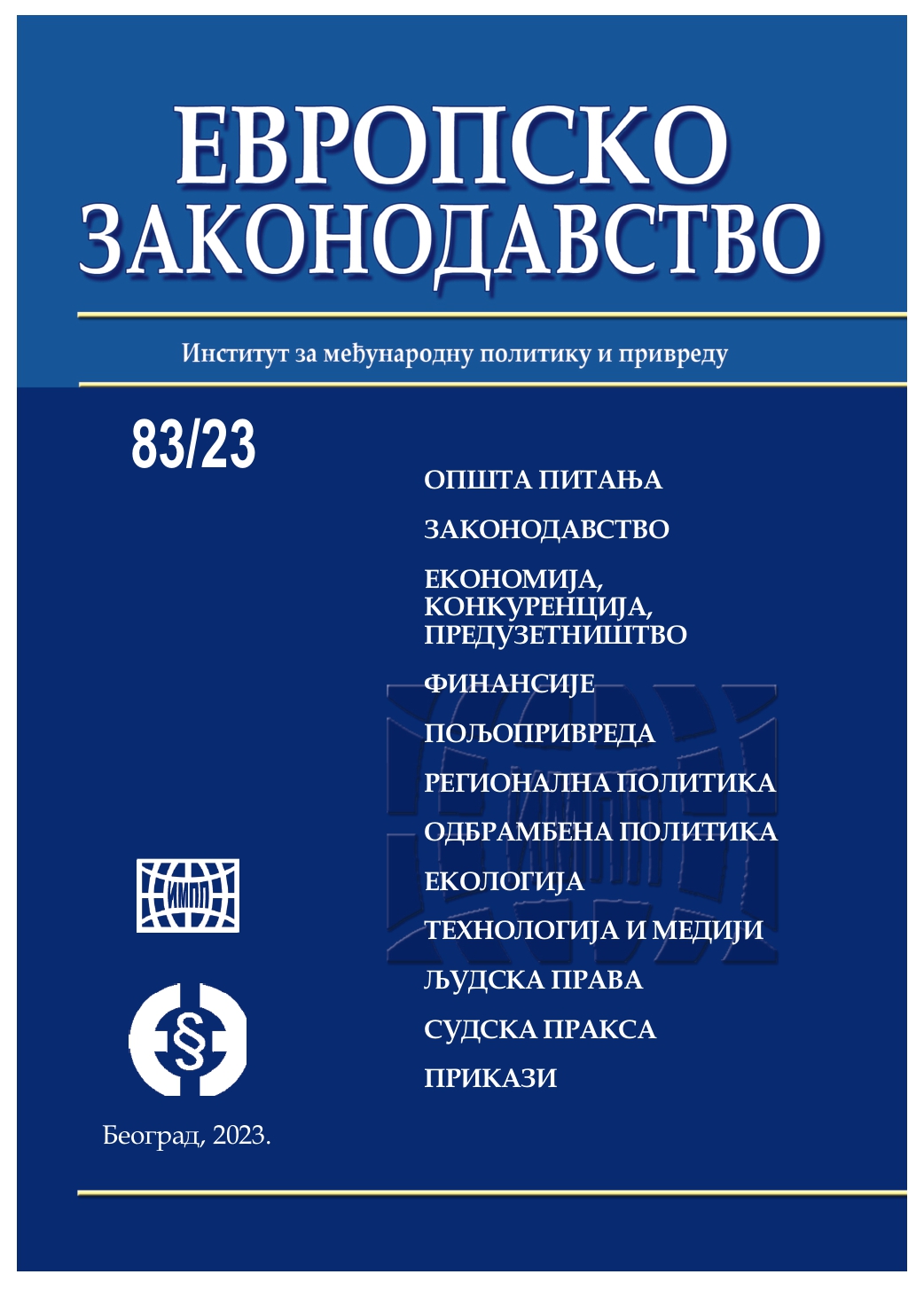
We kindly inform you that, as long as the subject affiliation of our 300.000+ articles is in progress, you might get unsufficient or no results on your third level or second level search. In this case, please broaden your search criteria.


Criticism in the employment relationship is justified by the employee’s subordination. This does not mean, however, that both parties to the employment relationship have the same right to criticism. The employee is obliged to perform the entrusted work according to certain rules. Another consequence of the employee’s subordination is the possibility of being evaluated by the employer. Therefore, critical remarks may also be addressed to the employee. The right to criticize work, which is not the same as evaluating the employee, should be considered an element related to the fact of employment. This means that the right to criticize the work performed is the employer’s right.
More...
This article addresses the issue of the employers’ obligations to fulfil the employees’ life, social, and cultural needs, in particular the employers’ right to resign from those obligations in times of crisis. The author examines the Polish law in search for legal regulations constituting framework for those obligations and analyses their nature. Some of those obligations are not enforceable, which means that the employees cannot bring court action against the employers to fulfill them. The article focuses on the obligations that are enforceable and explains how the employers may legally resign from fulfilling them. The article takes into consideration the standard methods of resignation as well as those introduced by the anti-crisis regulations.
More...
The article reports the results of a study conducted in the form of structured interviews. The goal of the study was to find out about the nature of this institution, the objectives of academic ombudsmen, the cases they deal with, their role in the academic community, in particular their role in resolving disputes at universities, and the type of methods they apply in their work. The institution of an academic ombudsman is considered to use an ADR method which is more appropriate in resolving problems and conflicts that appear at the universities, in comparison with formal procedures. The academic ombudsman takes into account important elements of the mission of universities which include respect for the other party, diversity, tolerance, and application of more inclusive and democratic methods in university governance. The introduction of ombudsman institutions at the universities is Poland is dictated not only by the necessity for more effective management and dispute resolution, but also shows a change in the attitude of the university administration towards the academic community. The need for research into the function of academic ombudsman arises from the relatively dynamic growth in the last three years in the number of academic ombudsmen as well as other institutions with similar names and goals. The emergence and significant increase in number of these institutions in the last few years at the universities in Poland raises the question of their nature and role at the universities.
More...
Protection of jobs has become one priority aim of the legislator during the crisis caused by the SARS-CoV-2 coronavirus pandemic. In the justification of the draft Act of 2 March 2020 on special solutions relating to the prevention, neutralisation, and combating of COVID-19 and other contagious diseases and the ensuing crisis situations (COVID Act), it was emphasized that the aid mechanisms introduced in the Act were supposed to prevent mass collective redundancies. And although the legislator tried to preserve sustainable employment during the COVID crisis, only a part of the introduced legal provisions offered a guarantee of work to employees. This article aims to provide an overview and assessment of the aid mechanisms implemented by the Polish legislator to protect jobs during the COVID crisis. The anti-crisis activities of the legislator, intended to preserve sustainable employment, can be divided into indirect and direct measures. An analysis was carried out taking into account the above division. Based on the analysis, reflections are formulated on the effectiveness of the implemented aid mechanisms. Finally, conclusions for the future are offered.
More...
The crisis caused by the outbreak and spread of the COVID-19 pandemic forced the legislature to make numerous legal changes. The undertaken measures comprised labour law understood in the broadest sense. They were intended to protect the economy, including jobs, from the dramatic consequences of the spread of the virus and the associated danger. The extraordinary circumstances called for specific measures, focused on protecting work and workers. The drafting of protective regulations, under such special circumstances, could not take place without dialogue involving the labour. At the multi-company level, this was seeking concrete solutions to protect the employees. In turn, at the company level, the partners exercised the rights guaranteed by the anti-crisis regulations. The article offers an analysis of the legal situation of participants in social dialogue – both the employees and the employers. In retrospect, it is possible to evaluate specific measures which have been adopted.
More...
The article analyzes the provisions of law and jurisprudence in the aspect of the possibility for the beneficiary to choose a nursing benefit when a special care allowance has already been granted by an earlier decision. The main objective of the article is to indicate the interpretation of the provision used in the previous practice by the authorities and the current problems presented in the jurisprudence of administrative courts that affect the statutory right of a party to choose a benefit. In the author’s opinion, the legislator does not take into account the changing economic and social situation in the adopted legal solutions, which is controversial in practice. The lack of legislative initiative in this regard leaves the judicature with the problem of non-compliance with the provisions. Administrative courts are forced to correct structural imperfections of the social security system in terms of support for carers of people with disabilities, which should not take place in a democratic state, as it is the sole role of the legislator.
More...
The presented article focuses on the protection of employees’ income, one of the many public interests the state pursues. Legislation creates several levels of employee income protection, from which the public interest of the state in this area of regulation can be induced. The article describes the substantive and procedural instruments of employee protection and compares specific forms of regulation in different legal systems. Based on these findings, appropriate de lege ferenda changes to regulation are presented, proposed, and argued. Finally, the article draws attention to the close connection between the world of work, labour regulation, financial (tax) law and economics, and hopes to instigate discussions between experts across the different legal sectors.
More...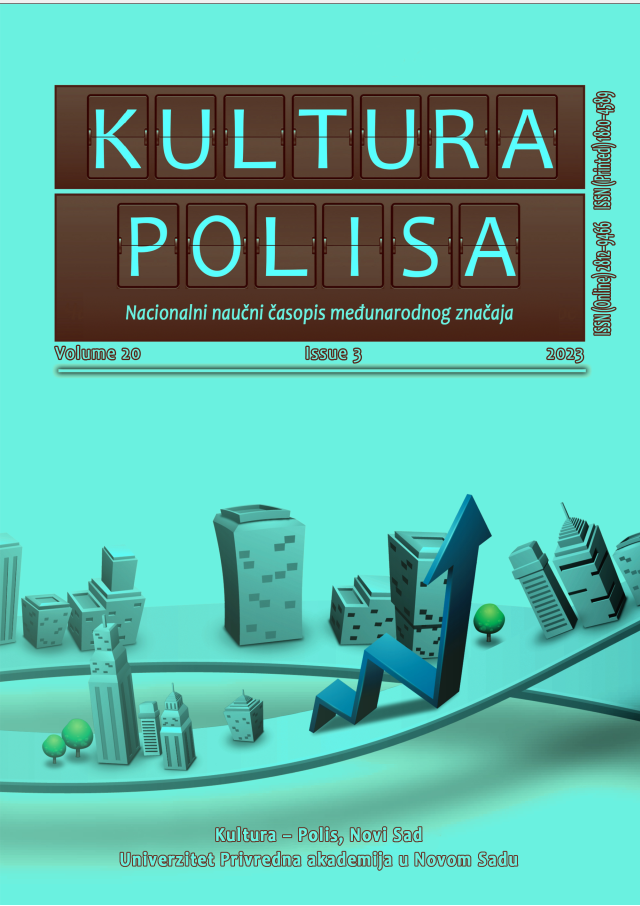
Based on the collected case law of the basic courts in the Autonomous Province of Vojvodina (hereinafter: APV) from 2016 to 2022, the authors examine the frequency and reasons for initiating employment disputes, especially during the COVID-19 pandemic, and assess the extent of the negative impact the pandemic had had on the world of work and the degree of violation of employees’ rights. The authors also suggest ways to improve and supplement the existing labour law framework, which contains numerous legal gaps. Notable among these is the lack of definition and type of disputes that arise on the basis of the employment relationship. The aforementioned gaps facilitate illegal practices, especially regarding flexible forms of employment and generally frequent cases of illegal dismissal by the employer. The research has confirmed that courts of general jurisdiction are commonly overloaded with labour disputes. Therefore, establishing special basic and appellate labour courts merits further consideration. The authors conclude, with certain reservations, that the pandemic conditions did not cause an additional increase in pending cases in the labour disputes section. The disputes related to payment of the employee’s monetary claim against the employer are the exception since these disputes were the most frequent and significantly increased in number during 2020 and 2021.
More...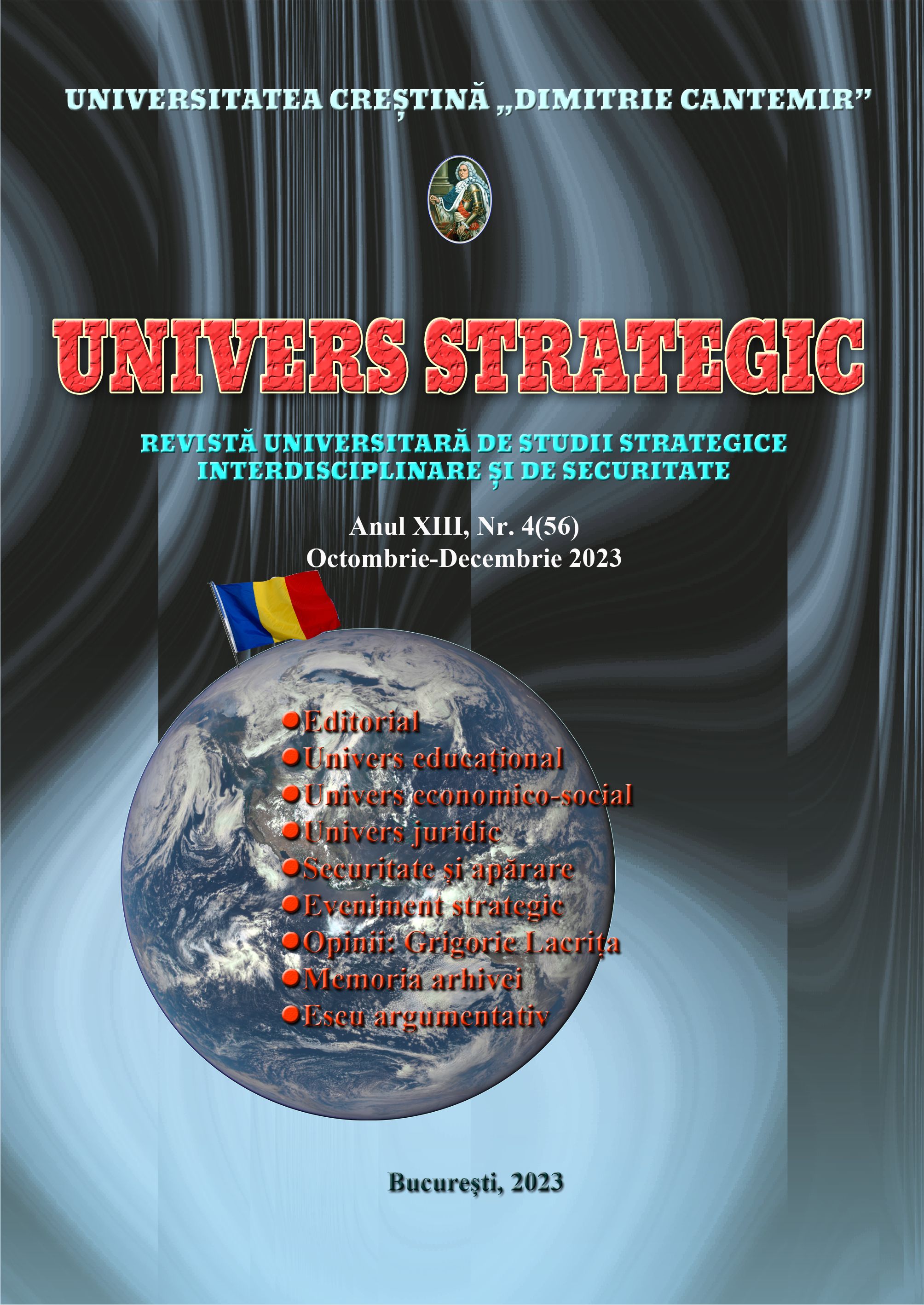
To create social cohesion, society adopted a system based on social policies. Social policies are the rules adopted by society to meet and solve certain social problems. Social policies differ from one society to another and are meant to provide security to its members. A distinction can be made between social protection and social security. Social protection is designed for every member of society who encounter different problems, provides basic resources to vulnerable people, protection against economic crises, natural calamities, etc. Instead, social security would represent the reparation of various social risks (maternity, unemployment, etc.). Social insurance (based on merit, for whom it contributes) and social assistance (based on need) are the main institutions that ensure the right to social protection. Abuses in domestic violence, especially on children, will have effects on the whole society. The society offers protection to victims of domestic violence through the social assistance program. There is a big discrepancy between how social assistance for children should work in Romania and how it works in reality. Moreover, the article presents several situations, case studies, in which the solutions offered by society to create equal opportunities are not the most suitable, they do not succeed, every time, in creating the desired result, they do not offer a chance real.
More...
Protection of the safety and health of workers — Organization of working time — Directive 2003/88/EC — Maximum working week — Reference period — Article 16 — Derogations — Articles 17 and 18 — Supervisor-educator in a boarding school providing night work – Compensatory rest methods
More...
Equal treatment for men and women in matters of social security – Directive 79/7/EEC – Article 4(1) – Discrimination on ground of sex – National legislation providing for a pension maternity supplement to be granted to women who have had a certain number of children – Exclusion from entitlement to that pension supplement of women who have requested early retirement – Scope of Directive 79/7EEC)
More...
The paper deals with the issues of indirect and associative discriminationin the European Union law, with focus on the caselaw of the European Court of Justice, and the importance of thecase law of this court for the sphere of employment. While prohibitionof indirect discrimination was introduced in the EuropeanUnion law a couple of decades ago, associative discriminationat the European Union level is, so far, addressed only by theEuropean Court of Justice. In this regard, the concept of associativediscrimination is still, to some extent, vague and subjectto debate, while the dilemmas and risks in relation to this conceptexponentially grow when reflected upon through lenses ofindirect discrimination. The goal of the paper is to point out theimportance, but also the risks of recognizing indirect associativediscrimination in employment, all in the context of takingone step further in achieving substantive equality in the worldof work.
More...
Since the 1970s, the majority of European states have witnessed serious changes at the labor market. Business organizations in all European Union economic sectors were included in the process of business operations reorganization with the aim of increasing competitiveness, making functional and administrative unity, and improving the quality of products and services. The presumption that numerous reorganizations would occur after the establishment of the unique market, as well as concern regarding the potential impact that the processes could have on the employees resulted in the adoption of law which would protect employees in case of transfer of undertakings (i.e., change of employer). Directive 77/187/EEC on the approximation of the laws of the Member States relating to the safeguarding of employees’ rights in the event of transfers of undertakings, businesses or parts of business was adopted at the level of the European Union in 1977(amended in 1998 and 2001). The primary objective of adopting this crucial legal regulation was the need to safeguard employment in the event of a change of employer, primarily by adopting the rule that all rights and liabilities of the transferor arising from a contract of employment or from an employment relationship existing on the date of the transfer should be (by operation of law) transferred to the transferee. The scope of validity, possibility and justification of the application of the above-mentioned rule were especially challenged by a very specific and delicate circumstance of initiating insolvency proceedings on an undertaking. Namely, in case of insolvency of the transferor, there is an expressed conflict between the labor law (which aims at safeguarding employment) and insolvency law (which aims at rescuing insolvent undertaking). In order to rescue the enterprise, which is facing financial difficulties, insolvent employer will tend to sacrifice (some of the) work positions to be able to sell the business cheaper and easier. On the other hand, the employees will tend to keep their employment, which usually discourages potential buyers from buying insolvent companies, and results in closing the business and making all employees redundant. Having in mind the above stated, the paper analyzes the ways the European legislator has resolved(attempted to resolve) the conflicting tendencies, as well as the ways EU member states have dealt with the identical issue. The focus will be on the presentation of the legal solutions of those member states (current and former) which, in the author’s opinion, have achieved an appropriate balance of conflicting interests of employees and other creditors (such as France, Germany, Spain, Great Britain).
More...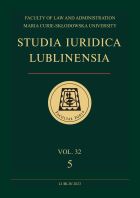
The topic of this study is to determine the substance of the right to social security in case of incapacity to work due to sickness in the light of Article 67 (1) of the Polish Constitution, and to establish the scope and form of social security on this account. The author presents and justifies the concept of social protection in the event of incapacity to work due to sickness based on the assumption that, although it is granted in connection with professional activity, it does not always have to be associated with loss of earnings. On the other hand, as for the scope of social security, it was assumed that it can cover (in the subjective aspect) not only persons subject to general social insurance and farmers’ social insurance, but also uniformed services as well as judges and prosecutors, while (in the objective aspect) also benefits from the employment (service) relationship, i.e. employee sick pay and emoluments (remuneration) for the time of incapacity to work due to sickness to which professional soldiers, police officers, judges or prosecutors are entitled. The latter is related to the formulation of the thesis that the exercise of the right to social security in case of incapacity to work due to sickness does not take place exclusively in the form of insurance disbursement, since – due to the open content of the norm included in Article 67 (1) of the Polish Constitution – it is also permissible to use other methods of legal protection, including the financing of benefits in this area from the own funds of the employing entities. The discussion is preceded by remarks on the concept of the right to social security, particularly with regard to the legal nature of Article 67 of the Polish Constitution and the essence of this right.
More...
The issue of the minimum wage has been attracting attention for many years, not only from experts, but also from the general public. Determining the minimum wage in every country, including Serbia, aims to establish minimum standards for personal income and combat poverty. The basic feature of the minimum wage is that it is a temporary measure, lasting up to 6 months, as a response to an employer’s poor financial performance, and as such it represents an extraordinary measure, which should be abolished upon returning to the normal economic conditions. Upon resuming normal business operations, the employer is required to compensate employees for the shortfall, ensuring they receive their contracted salary in full. However, instead of the minimum wage being an exception, used only in extraordinary circumstances, it has now become commonplace in the labor market, challenging the original concept of the minimum wage and raising questions about its effectiveness. This paper aims to examine the concept of wage and minimum wage in Serbia, along with its practical implications in the domestic labor market.
More...
During the work process, numerous instances of dispute regarding the positions of the employees, or the interpersonal relations between them or between them and their employer may arise. In addition to the traditional judicial method of labor dispute resolution, it is necessary to develop independent and impartial negotiation mechanisms between the parties in the area of individual and collective labor disputes. In Serbia, these are certainly the arbitration settlement of individual and collective labor disputes, and conciliation as a method of resolving collective labor disputes within and through the Republic Agency for Peaceful Settlement of Labor Disputes. There are many benefits to peaceful labor dispute settlement. The goal of supplementary procedures, i.e. procedures for peaceful labor dispute resolution, is to relieve the traditional judicial approach and direct it to the procedures where a judicial settlement of the dispute is truly necessary. Besides the concept, advantages and characteristics of the amicable labor dispute settlement procedures, certain types of these procedures such as mediation, conciliation and arbitration are also analyzed in the theoretical section of this paper, as well as the most important provisions of the Employment Act and the Law on Amicable Resolution of Labor Disputes. In the research section of this paper, the practice of the Republic Agency for Peaceful Settlement of Labor Disputes in the procedures of amicable labor dispute settlement, both for the territory of the Republic of Serbia and the territory of the City of Novi Sad, is analyzed. The primary research data source was the official data of the Republic Agency for Peaceful Settlement of Labor Disputes. The paper is methodologically based on a theoretical analysis of relevant contemporary theoretical views, a normative analysis of legislative sources, and a quantitative analysis of statistical indicators in the domain of the research subject.
More...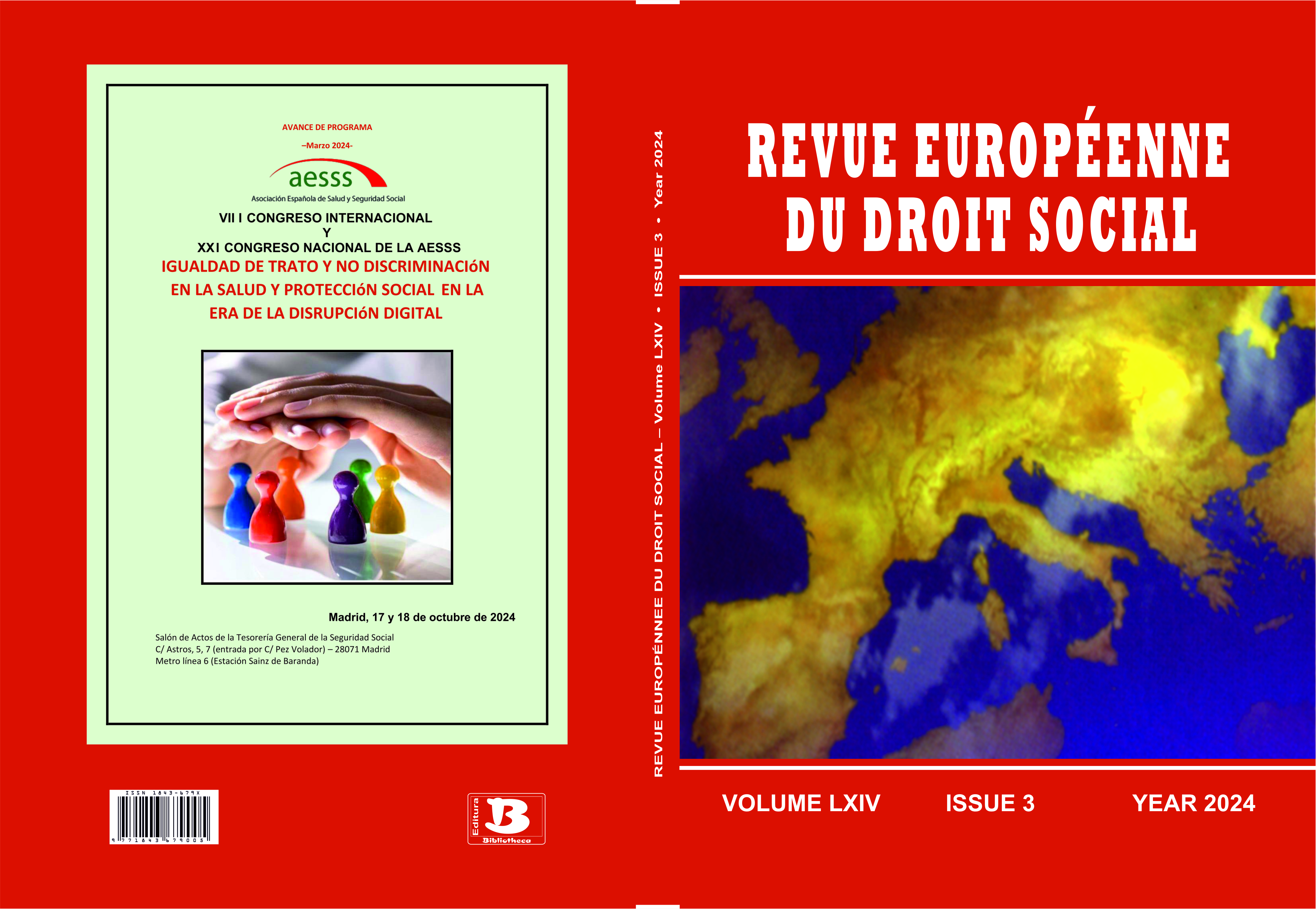
In recent years, discussions around workplace harassment, and especially the ratification of ILO Convention 190, have gained momentum worldwide, drawing attention to the profound impact it can have on people, organizational culture and the general well-being of society. As workplaces strive to foster environments of equity and inclusion, addressing the issue of harassment has become a fundamental aspect of Mexican labor law. This case study delves into the specific context of Mexico and the case of Rosa, a laboratory employee with 20 years of seniority as a chemical industry assistant, the workplace harassment she suffered from her Supervisor for 20 years, reaching the limit of wanting to resign despite requiring the money; This case, which has a 2023 ruling within a new Mexican labor procedure, undoubtedly dictates a relevant and hopeful judicial precedent for the hundreds of victims of corporate harassment and how to achieve economic compensation for workplace harassment within the framework of Mexican labor law. Mexico, within the context of the USMCA, like our partner nations, has promoted important legal, corporate and social changes to confront, eradicate and economically compensate victims of workplace harassment. Recognition of people's rights to dignity, safety and respect in the workplace is critical to fostering a healthy and productive work environment. This case study seeks to explore the jurisdictional mechanisms and nuances to achieve financial compensation as a remedy for workplace harassment in Mexico, providing information on the legal landscape, evidence, hearings and witnesses that were required for this purpose, as well as the prevailing challenges and possible avenues for improvement or even reform. It is imperative to recognize the economic implications of workplace harassment, which are then at the employer's expense, extending beyond the people immediately involved, to severely damaging their mental health. The business economic repercussions, both for affected individuals and organizations, highlight the urgency of implementing effective legal frameworks and redress mechanisms. Through a careful analysis of labor law in Mexico and real-life case studies, this study aims to bring valuable perspectives to the ongoing dialogue on fostering harassment-free work environments, promoting justice, and ensuring fair compensation for those who have suffered such violations.
More...
I. The Great Transformation of our time.1. The Great Transformation and the prevention of occupational risks.2. Generalized remote work through the use of new digital technologies. The right to prevent occupational risks in remote work (Teleworking and Home Working)II. Comprehensive risk management: Public health, Environment and Occupational risks.1. Comprehensive Risk Management. On the way to overcoming a deficient regulatory framework.2. Common principles of European polysystemic law for protection against environmental risks: the principles of precaution and responsibility and “inter-systemic” problems.3. Balance and perspectives.III. Selected bibliography.
More...
The digital transformation is associated with a series of emerging and, at the same time, novel risks such as computer fatigue and digital disconnection, which are becoming increasingly relevant in different regulatory frameworks. These regulations also include the part corresponding to the plan and implementation by companies, either through consultation with workers' representatives and/or through collective bargaining, of policies for the appropriate use of digital devices in the workplace, with the aim of guaranteeing rest at the end of the working day and preventing computer fatigue. This study aims to analyse what computer fatigue in the workplace consists of, contributing with the proposal of a series of guidelines and good practices for the development of its management protocols.
More...